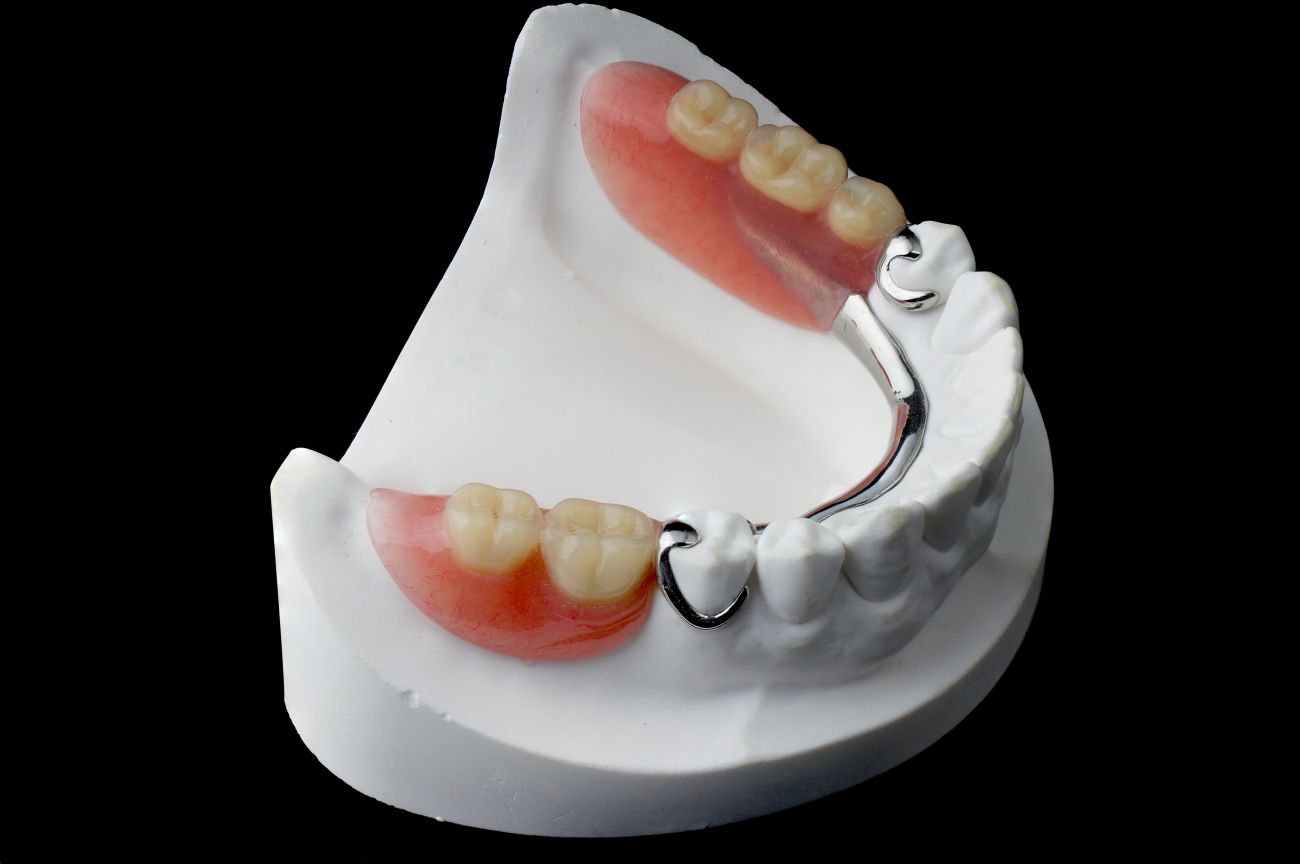Dental implants are a very popular choice for those who need to replace missing or damaged teeth, as well as for people who have loose dentures. Since dental implants look and function just like real teeth, they’re very appealing. But what isn’t so appealing is the high price that comes with them. Luckily, there are several alternatives that look and work just as well as dental implants. Better yet, they come with a more affordable price.
1. Partial Denture
A partial denture consists of a gum-colored plastic base attached to replacement teeth. Sometimes, a metal framework holds partial dentures in place. This type of denture is typically used when a person still has one or more natural teeth. It keeps these natural teeth from changing position while also filling in the spaces that were created by the missing teeth.
Some of the benefits of getting a partial denture rather than dental implants are:
- The procedure for getting partial dentures is much less invasive than getting dental implants;
- Getting partial dentures is less time-consuming than getting dental implants, and
- Partial dentures don’t require you to have a certain amount of jawbone material.
Partial dentures range in price from $650 to $2,500. This figure refers to an upper or lower partial denture, not both. The price can vary depending on your insurance coverage and the number of replacement teeth needed.
2. Tooth-Supported Bridge
A tooth-supported bridge is a false tooth held in by caps that are placed over the supporting teeth. This type of bridge is an option when you have a missing tooth with natural teeth on both sides of the gap.
A few advantages of choosing a tooth-supported bridge over dental implants are:
- Tooth-supported bridges don’t involve bone grafts or extensive surgery;
- Getting tooth-supported bridges only requires two visits to the dentist, and;
- Tooth-supported bridges are often covered by insurance and come with a lower cost upfront.
Most tooth-supported bridges fall between $2,000 and $5,000. The price of a tooth-supported bridge can vary quite a bit based on a few different factors, including the:
- Number of teeth needed to fill the gap;
- Type of material used to form replacement teeth;
- Location, and;
- Complexity of the bridge placement.
Of course, your insurance plan also plays a part in determining the total cost you’ll need to cover out of pocket.
3. Resin Bonded Bridge
A resin bonded bridge is very similar to a tooth-supported bridge, but it’s even less invasive. Rather than putting caps over the natural teeth that hold the bridge into place, resin is placed on the backs of the teeth in order to attach the bridge.
The reasons that a resin bonded bridge is better choice than dental implants are:
- Resin bonded bridges don’t compromise or damage your natural teeth;
- This type of bridge is easily reversed, and;
- Resin bonded bridges come with a lower price point than dental implants.
Resin bonded bridges range from $1,500 to $2,500 on average. As mentioned with tooth-supported bridges, resin bonded bridges can vary in price based on several factors, including insurance coverage and size of the bridge.
4. Temporary Denture
A temporary denture, or flipper, is a removable retainer that has a prosthetic tooth attached to it. This prosthetic tooth is usually made from dental-grade acrylic resin. A temporary denture sits along the roof of your mouth or your lower jaw and creates the appearance of a full smile.
Temporary dentures come with several benefits compared to dental implants. These are:
- The process of getting a temporary denture is short and non-invasive;
- Temporary dentures have an extremely low price in comparison to dental implants, and;
- Temporary dentures are easy to wear and keep your other teeth from shifting.
Temporary dentures typically cost anywhere from $300 to $500. Better yet, they’re usually at least partially covered by most types of dental insurance. However, you might run into additional costs if you need to get them adjusted or repaired.
The Bottom Line
Although dental implants are a common choice for those looking for ways to fill in gaps left by missing teeth, there are several other options that are much more affordable. These include:
- Partial Dentures: A great option for those who don’t have enough jawbone material to get dental implants.
- Tooth-Supported Bridges: Ideal for people who have natural teeth on either side of the gap from their missing tooth or teeth.
- Resin Bonded Bridges: An even simpler and less invasive version of tooth-supported bridges.
- Temporary Dentures: Often used as a temporary option. As such, they are the cheapest and least invasive alternative to dental implants.
Be sure to talk to your dentist about your needs and preferences to figure out which of these alternatives is best for you.
